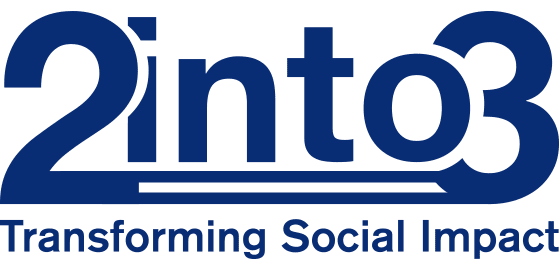The Value of Skills-Based Hiring in Ireland’s Nonprofit Sector
Change is the only constant, and with the rise of AI, Irish nonprofits are increasingly focusing on soft skills developed through life and work experience. At 2into3, we’ve seen first-hand how skills-based hiring allows organisations to be more agile and adaptable; a distinct advantage in what is a rapidly evolving sector.
Why are we supporting a shift to skills-based hiring? Traditionally, many organisations relied on a competency-based approach – assuming that candidates who’ve been in similar roles in the past are automatically best suited. However, this isn’t always correct, and in a tight talent market, often isn’t even feasible.
Just as COVID encouraged employers to consider new ways of working – with many adopting a hybrid approach where feasible – the tight labour market is encouraging recruiters and hiring managers to consider new ways of hiring.
What is Skills-Based Hiring and Why is it Gaining Popularity?
Skills-based hiring shifts the focus from “what have they learned” to “what can they do,” opening doors to candidates with transferrable skills and fresh perspectives.
- Wider Talent Pool: From a quick search on LinkedIn, we can see that while there are 4,000,000 Chief Executive Officers on LinkedIn globally, only 800 are in Ireland’s nonprofit sector, of which less than 30 are actively ‘open to work’, making it essential to look beyond traditional criteria. Considering transferrable skillsets which are of value to your organisation, i.e., assessing for an individual’s abilities and potential and not just qualifications or direct experience can widen the talent pool.
- Time Saving: With Ireland almost at full employment, in 2024 alone, 55 senior nonprofit roles were re-advertised, highlighting the challenging market and need for a fresh and strategic approach to recruitment. While some fear a skills-focussed approach is more time-consuming, we have found that taking the time to map and assess for both transferrable skills and values alignment within the talent pool available can not only speed up recruitment but can also lead to better quality hires in the long-run.
- Increased Retention and Agility: High staff turnover for nonprofits is a complex challenge which can be caused by a range of factors – culture, burnout, and funding related job insecurity can all play a part. In addition to enabling organisations to be more agile, moving staff as needs change; skills-based hiring supports the placement of individuals into roles where they can truly succeed – supporting team morale and retention.
The Value of Soft Skills and Transferrable Skills
With AI automating many tasks, ‘soft skills’ or ‘people skills’ are more valuable than ever. These are often best assessed through behavioural and situational interview questions. Examples of transferrable skills include community involvement, empathy, problem-solving, teamwork, interpersonal skills, innovation, etc., which enable individuals to deliver on an organisation’s mission.
How to Implement Skills-Based Hiring: From Reactive to Strategic Recruitment
All too often, recruitment is reactive: someone resigns, and a five-year-old job description is dusted off with a view to finding a direct replica.
A more strategic, skills-based approach is required. Whilst ideally a skills-based approach is a strategic HR-led initiative implemented organisation-wide; if your organisation does not have the resources to facilitate this, it is possible to pilot skills-based hiring in your own team.
Next time a team member resigns, consider adopting a skills-based approach by:
-
Reviewing your strategic plan and mapping out existing skillsets in your current team.
-
Identifying the skills needed to strengthen your team by thinking in terms of tasks, not just job titles.
-
Writing clear, skills-focused job descriptions.
-
Using structured interviews and scoring matrices to assess abilities, not just qualifications.
-
Including practical assessments, e.g., written tasks, presentations, scenarios, or psychometric tests.
-
Ensuring that onboarding addresses any remaining skills gaps and supports new hires as they transition.
Managers who seize the opportunity to further review team skillsets, identify gaps, and recruit for what’s needed to further strengthen their team demonstrate a commitment to a strategic and strengths-focussed approach, which can further aid staff retention. In a sector consistently struggling to recruit and retain staff, it can be argued that the long-term benefits of skills-based hiring – greater diversity, agility, and retention – are worth any initial investment.
Taking the First Step
If you would like to discuss how 2into3 can support your organisation with a range of talent services, contact Shannon Barrett at shannon.barrett@2into3.com.



